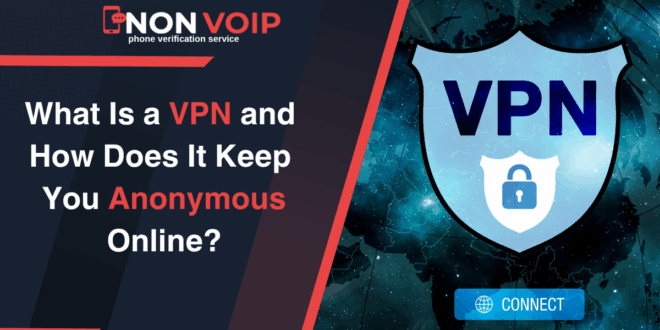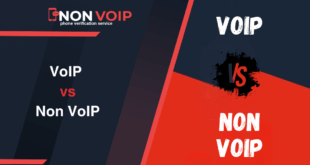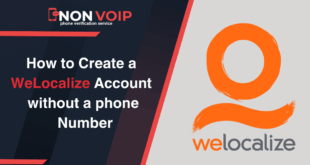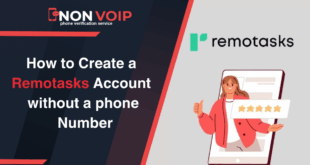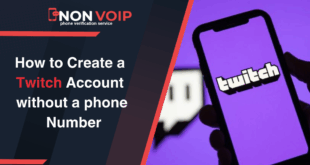Have you ever tried to watch a series, only to be met with the message, “This content is not available in your country”?
Or used a public Wi-Fi network and feel worried about the security of your data? These daily situations are part of the reason why the conversation around protecting your online privacy has become more important than ever, and the most well-known tool to achieve this is the VPN.
In this article, we will answer the question, “What is a VPN?” We’ll dive into the details of how it works, its practical benefits, and how you can use it as your line of protection.
What Is a VPN?

A VPN (an acronym for Virtual Private Network) is a service that acts as a protective shield for your internet connection.
In simpler terms, it’s an application you install on your device (computer or phone), and with a single click, it creates a secure and encrypted connection between you and the internet.
This connection hides your real identity and geographic location and protects all of your data from prying eyes, whether they are hackers, advertising companies, or even your own internet service provider (ISP).
How Exactly Does a VPN Work?
 To understand how VPN works, you first need to understand how your normal connection works.
To understand how VPN works, you first need to understand how your normal connection works.
Usually, when you visit a website, your device connects directly to the site, revealing your IP address, which is like your home address on the internet.
A VPN, however, works by creating a secure, encrypted tunnel between your device and a VPN server in another location on the internet.
Steps of How VPN Works:
- Running the VPN Software: You install a VPN program or app (called a VPN client) on your computer or phone.
- Creating the Encrypted Connection (The Tunnel): When you activate the VPN, it establishes an encrypted connection between your device and the remote VPN server. All data sent from your device is rendered unreadable (“obfuscated”) through encryption, so no third party (ISP, hackers, other entities) can read this data, even if they intercept it.
- Routing Data Through the Server: Your internet traffic is rerouted through the VPN server in the country or location you choose.
- Hiding Your Identity and Location: The VPN hides your real digital address (IP) and your geographic location, providing you with a temporary identity associated with the server’s location.
- Receiving Data from the Internet: Websites and services send data back to the VPN server, which then encrypts it and sends it through the secure tunnel to your device, where it is decrypted and displayed to you.
What are the benefits of using a VPN?

The benefits of using a VPN extend, essentially a VPN performs three core functions that change how you interact with the internet:
- Hiding Your Real IP Address: This is its primary function. By replacing your real address with another, it conceals your geographic location and digital identity from the websites and services you use.
- Encrypting Your Entire Connection: This is the most critical security feature. Strong encryption ensures that everything you do online—from sending emails to entering your credit card details—remains completely private and secure.
- Bypassing Geo-Blocking and Censorship: Since you appear to be browsing from another country, you can easily access websites, apps, and services that are restricted to that country, overcoming any geographic or local censorship.
What Are the Most Popular Types of VPNs?

When people talk about VPNs, they often refer to the most common type, but it’s helpful to know the differences between the main categories:
- Remote Access VPN: This is the most common type, which is divided into:
- Personal VPN: When you subscribe to a VPN, this is most likely the type you are using. Its goal is to connect your device to the public internet through a secure intermediary server to protect your privacy and bypass geo-restrictions.
- Corporate Access: Employees use this to securely connect to their company’s private network from home or any location outside the office. The objective is to securely access the company’s internal files and systems, not to hide the user’s identity from the company.
- Mobile VPN: This should not be confused with simply using a VPN app on a phone. A Mobile VPN is specifically designed to maintain a stable connection while the user is moving and changing networks (for example, when switching from a Wi–Fi network to 4G/5G mobile data).
2. Site-to-Site VPN: This type is designed for large companies and organizations. Instead of connecting a single user to a network, it connects two or more entire networks in different geographical locations. It serves as a secure bridge between these networks and is not intended for individual use.
What Are the Specifications of a Good VPN?
When considering choosing the best VPN, there are essential and non-negotiable criteria:
- No-Logs Policy: This is the most important feature of all. It means the VPN service commits to not recording or storing any information about your activity (the sites you visit, the files you download).
- Kill Switch: This feature is your safety net. If the VPN connection suddenly drops for any reason, the kill switch immediately cuts off your device’s internet connection to prevent your real IP address from being exposed.
- A Wide Server Network and High Speeds: The more servers a service provides in more countries, the better options and higher speeds you will have due to user distribution and reduced server load.
- Modern Encryption Protocols: The protocol is the “language” used for encryption. The presence of modern protocols means you are getting the best balance between speed and security.
Is a VPN Enough to Fully Protect Your Digital Footprint?
A VPN is a fundamental step, as it protects the most important parts of your digital footprint: your IP address and your browsing activity. But today, there is another equally important identifier that almost every service requires for registration: your phone number.
To achieve a complete separation between your real identity and your online activity, those concerned with privacy can use:
- A VPN to hide where you are connecting from.
- A temporary number from Non-voip to hide who you are when registering for services.
This combination is ideal when signing up for social media platforms, chat apps, or any service you don’t want to link to your personal phone number.
Frequently Asked Questions (FAQs)
Is using a VPN legal?
Yes, using a VPN is perfectly legal in the vast majority of countries. Laws prohibit its use for illegal activities, not its use in itself.
Will a VPN slow down my internet speed?
Any VPN will cause a slight decrease in speed due to the extra distance data travels and the encryption process. However, with modern and high-quality VPN services, this decrease is unnoticeable in daily use.
What is the difference between a free and a paid VPN?
A free VPN offers protection with some limitations, such as slower speeds, a limited number of servers, and no strong guarantee of privacy.
Sometimes, it might keep a log of your activity or expose you to annoying ads. A paid VPN, however, offers high speed, multiple servers in different locations, stronger encryption, a no-logs policy, and security features.
What is the difference between a VPN and a Proxy?
A VPN encrypts your entire internet connection and protects all your data, hiding your IP at the level of all apps and programs on your device.
A Proxy, on the other hand, only changes or hides your IP address, usually at the browser level only, and does not encrypt your data. The protection it offers is much lower than that of a VPN.
In Conclusion
Every click, every search, and every interaction is tracked and analyzed. A VPN is a clear declaration that you are in control of your digital footprint.
It gives you the freedom to browse securely and explore the internet without limits.
Start by using a VPN as your first step, and when you’re ready to build complete privacy, remember that adding a dedicated phone number is what completes your privacy shield and gives you full control.
 Blog Non-VoIP
Blog Non-VoIP
